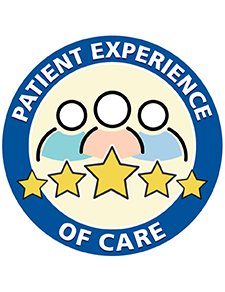Grievances
The Network’s case review responsibilities include investigating and resolving grievances filed with the Network and addressing non-grievance access to care cases. CMS views the investigation and resolution of grievances and non-grievance access to care cases as an opportunity to focus on meeting the needs of ESRD patients as well as an opportunity to create change by listening to and learning from the patient’s and/or caregiver’s perspective. Change occurs when dialysis facilities understand the root cause(s) of the grievance issue and implement steps to resolve the issue(s). The steps that lead to resolution may be simple and specific to the grievant or there may be a need for a systemic change to correct the issue for the benefit of all patients within a dialysis facility.
Grievances: The Role of the Network
Depending on the details of a case, the Network may assume one or more of the following roles in addressing a grievance filed by an ESRD patient, an individual representing an ESRD patient, or another party:
- Facilitator
- Expert investigator
- Educator
- Advocate
- Referral source
- Quality improvement specialist
Upon the receipt of a grievance, the Network will classify the case as one of the following:
- Immediate Advocacy - concerns that are non-clinical in nature and do not require a complex investigation; resolved in 10 calendar days or less
- General Grievance - concerns that are non-clinical in nature but require complex investigation and review of records; resolved in 60 calendar days or less
- Clinical Quality of Care - concerns that involve clinical or patient safety issues and requires a clinical review of records by an RN and/or the Medical Review Board (MRB); resolved in 60 calendar days or less
Please note that you will be contacted via phone and/or in writing once a grievance has been filed with the Network. You will be required to provide records as requested within the time frame outlined by the Network. Recommendations for quality improvement efforts will be made once all issues have been investigated. The Network will guide you through all quality improvement efforts and will continue to provide support and follow-up as necessary. We share your goals to ensure that all care provided to patients in our service area is of the highest quality possible.
Tools & Resources
Grievance Posters
Resources for Patients
- Patient Rights and Responsibilities: English | Spanish
- We Can Help You: English | Spanish
- Why Do I Feel Cold During Dialysis? English | Spanish
- Dialysis Patient Grievance Toolkit: English|Spanish
- Grievance Process Guide for Patients and Families English: Network 1|Network 2|Network 6|Network 9
- Grievance Process Guide for Patients and Families Flyer (Spanish): Network 1|Network 2|Network 6|Network 9
- Grievance Process: Flyer
- ESRD National Coordinating Center Thriving without Fear-Managing Patient Retaliation
- The National Forum of ESRD: Networks Dialysis Patient Grievance Toolkit English | Spanish
Resources for Healthcare Professionals
- *NEW* Guidelines for Managing Patients with Bed Bugs: Flyer
- Changing Patient Chair Times: Best Practices Flyer
- Decreasing Patient-Provider Conflict: A Pathway to Resolution: Handout
- Grievance Process Q&A: Handout
- V-Tags and Patient Involuntary Discharge: Interpretive Guidance
- ESRD National Coordinating Center Tips for Dialysis Staff to Identify and Manage Retaliation

